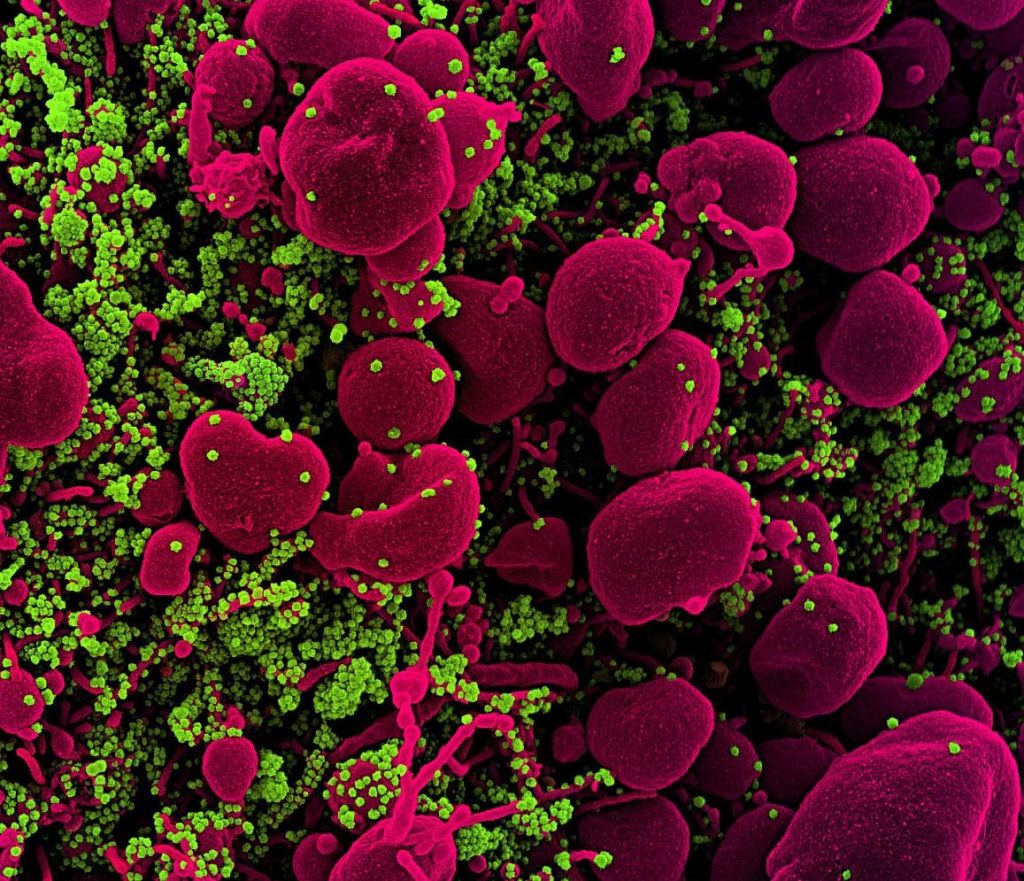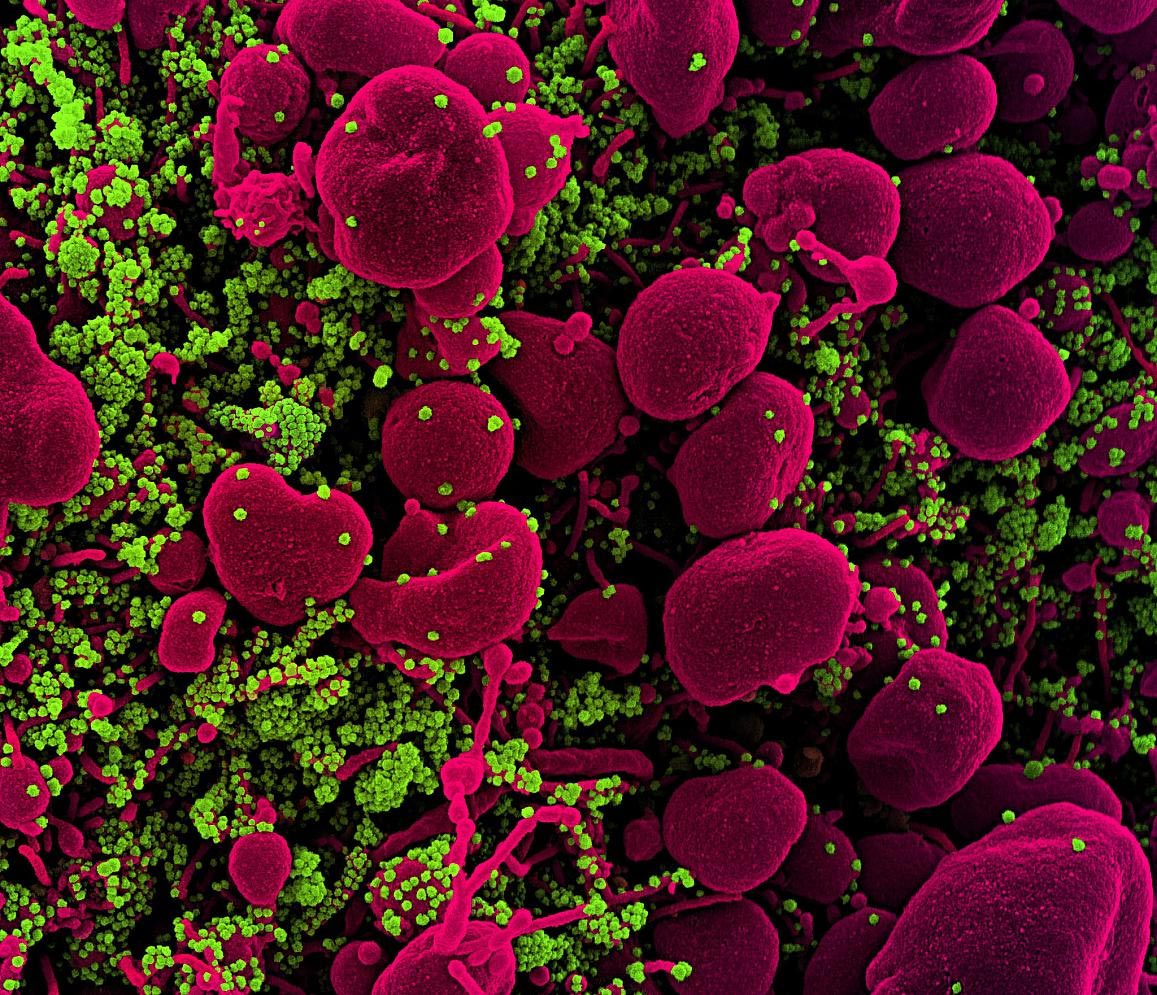
The investigational antiviral remdesivir is superior to the standard of care for the treatment of COVID-19, according to a report published today in the New England Journal of Medicine. The preliminary analysis is based on data from the Adaptive COVID-19 Treatment Trial (ACTT), sponsored by the National Institute of Allergy and Infectious Diseases (NIAID), part of the National Institutes of Health. The randomized, controlled trial enrolled hospitalized adults with COVID-19 with evidence of lower respiratory tract involvement (generally moderate to severe disease). Investigators found that remdesivir was most beneficial for hospitalized patients with severe disease who required supplemental oxygen. Findings about benefits in other patient subgroups were less conclusive in this preliminary analysis.
The study began on Feb. 21, 2020 and enrolled 1,063 participants in 10 countries in 58 days. Patients provided informed consent to participate in the trial and were randomly assigned to receive local standard care and a 10-day course of the antiviral remdesivir intravenously, developed by Gilead Sciences, Inc., or local standard care and a placebo. The trial was double-blind, meaning neither investigators nor participants knew who was receiving remdesivir or placebo.
The trial closed to enrollment on April 19, 2020. On April 27, 2020 (while participant follow-up was still ongoing), an independent data and safety monitoring board overseeing the trial reviewed data and shared their preliminary analysis with NIAID. NIAID quickly made the primary results of the study public due to the implications for both patients currently in the study and for public health. The report published today in the New England Journal of Medicine describes the preliminary results of the trial.
The report notes that patients who received remdesivir had a shorter time to recovery than those who received placebo. The study defined recovery as being discharged from the hospital or being medically stable enough to be discharged from the hospital. The median time to recovery was 11 days for patients treated with remdesivir compared with 15 days for those who received placebo. The findings are statistically significant and are based on an analysis of 1059 participants (538 who received remdesivir and 521 who received placebo). Clinicians tracked patients’ clinical status daily using an eight-point ordinal scale ranging from fully recovered to death. Investigators also compared clinical status between the study arms on day 15 and found that the odds of improvement in the ordinal scale were higher in the remdesivir arm than in the placebo arm. Trial results also suggested a survival benefit, with a 14-day mortality rate of 7.1% for the group receiving remdesivir versus 11.9% for the placebo group; however, the difference in mortality was not statistically significant.
Ultimately, the findings support remdesivir as the standard therapy for patients hospitalized with COVID-19 and requiring supplemental oxygen therapy, according to the authors. However, they note that the mortality rate of 7.1% at 14 days in the remdesivir arm indicates the need to evaluate antivirals with other therapeutic agents to continue to improve clinical outcomes for patients with COVID-19. On May 8, 2020, NIAID began a clinical trial (known as ACTT 2) evaluating remdesivir in combination with the anti-inflammatory drug baricitinib compared with remdesivir alone.
Reference: “Remdesivir for the Treatment of Covid-19 — Preliminary Report” by John H. Beigel, M.D., Kay M. Tomashek, M.D., M.P.H., Lori E. Dodd, Ph.D., Aneesh K. Mehta, M.D., Barry S. Zingman, M.D., Andre C. Kalil, M.D., M.P.H., Elizabeth Hohmann, M.D., Helen Y. Chu, M.D., M.P.H., Annie Luetkemeyer, M.D., Susan Kline, M.D., M.P.H., Diego Lopez de Castilla, M.D., M.P.H., Robert W. Finberg, M.D., Kerry Dierberg, M.D., M.P.H., Victor Tapson, M.D., Lanny Hsieh, M.D., Thomas F. Patterson, M.D., Roger Paredes, M.D., Ph.D., Daniel A. Sweeney, M.D., William R. Short, M.D., M.P.H., Giota Touloumi, Ph.D., David Chien Lye, M.B., B.S., Norio Ohmagari, M.D., Ph.D., Myoung-don Oh, M.D., Guillermo M. Ruiz-Palacios, M.D., Thomas Benfield, M.D., Gerd Fätkenheuer, M.D., Mark G. Kortepeter, M.D., Robert L. Atmar, M.D., C. Buddy Creech, M.D., M.P.H., Jens Lundgren, M.D., Abdel G. Babiker, Ph.D., Sarah Pett, Ph.D., James D. Neaton, Ph.D., Timothy H. Burgess, M.D., M.P.H., Tyler Bonnett, M.S., Michelle Green, M.P.H., M.B.A., Mat Makowski, Ph.D., Anu Osinusi, M.D., M.P.H., Seema Nayak, M.D., and H. Clifford Lane, M.D. for the ACTT-1 Study Group Members, 22 May 2020, The New England Journal of Medicine.
DOI: 10.1056/NEJMoa2007764


Leave a Reply
You must be logged in to post a comment.